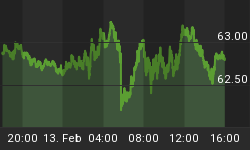Although it is no longer suggested that Greenspan is deserving of a Nobel Prize in economics his performance is still being overrated by the great majority of commentators who ought to know better. It needs to be understood that Greenspan, the Fed and the commentariat still subscribe to the dangerous price rule concept, according to which inflation is defined as too much money chasing too few goods.
Hence, match monetary growth with output and this will stabilise prices and thus the economy. (Milton Friedman made the same egregious error). Minor rises in the CPI of 2 per cent or so are considered of little importance. It follows from the rule that falling prices are defined as too little money chasing too many goods and that this situation would be deflationary.
The price rule is a dangerous recipe for recession: a fact that I suspect Greenspan, no matter how dimly, is aware of. I think he still recalls that during the 1920s the likes of Fisher, Keynes and Sir Ralph Hawtrey interpreted America's 'stable price level' as evidence that the economy was on a steady growth path and immune to recession. It was only a few dissenters like Benjamin M. Anderson, Ludwig von Mises and Frederich von Hayek, sneeringly referred to as old fashioned "qualitative economists", who pointed out that these so-called stable prices were concealing enormous "imbalances" created by excess credit, and that these "imbalances" would eventually have to be liquidated once the economy descended into the unavoidable recession.
The cruel irony is that though the "qualitative economists" were vindicated by subsequent events their Cassandra-like warnings were virtually lost to history while the free market got the blame for the Great Depression. The point that needs to be emphasised is that Greenspan is aware of the economic debate that waxed and waned during the 1920s and may even have been influenced by the "qualitative" approach. (I get the impression that Bernanke is totally unaware of what drove the 1920s boom and then brought it to a savage halt).
This, I think, helps explains the number of references Greenspan made to imbalances when he expressed concern about growth in consumer spending, despite an apparently benign CPI. His refusal to comment on the possibility of a soft-landing also suggests that he knew that a recession was on the horizon. The problem today, as always, is that nothing has been learnt from history. Monetary policy has been loose and the price rule still rules. In other words, another recession is on the cards. It's only a question of time.
















